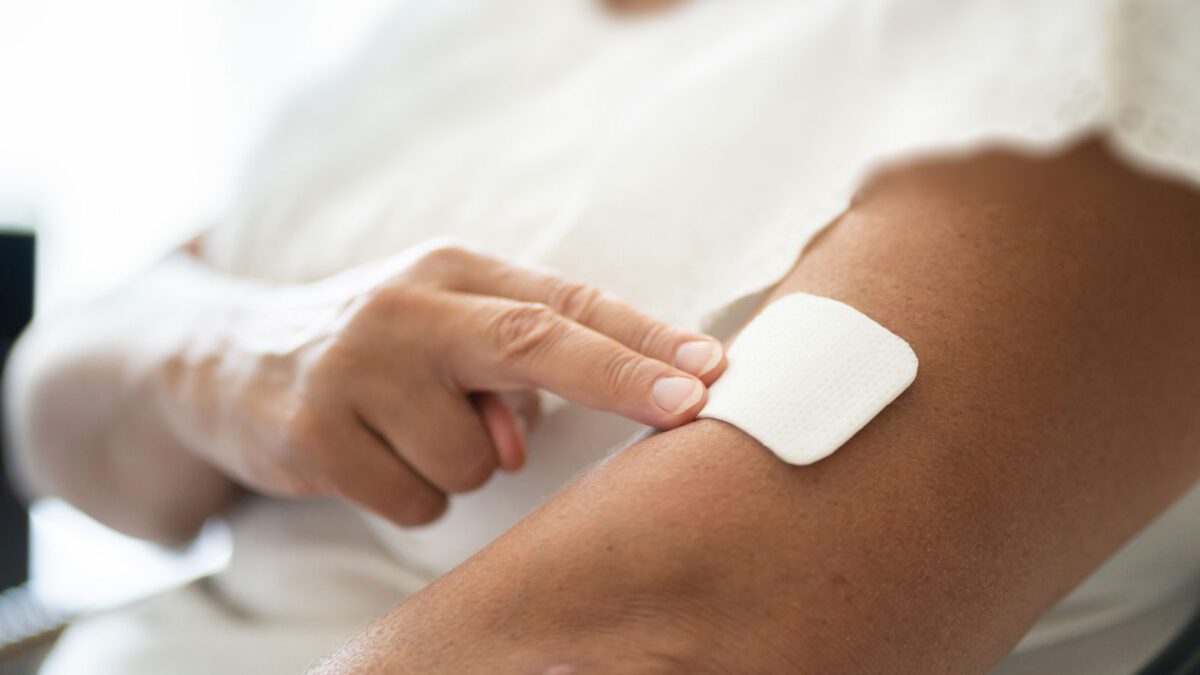Virologist Connor Bamford and Professor John McLauchlan, both of the University of Glasgow, explain to the Hepatitis SA Community News how their research shows that not all people are equally vulnerable to hepatitis C.
The hepatitis C virus (HCV) infects around one per cent of the human population and is a devastating pathogen. In most people, it silently infects the liver for decades, and can cause life-threatening inflammation, scarring and even cancer. How the virus achieves this feat has long puzzled scientists.
In our latest study, published in the journal PLOS Pathogens, we found that a molecule that defends against HCV and other pathogens is weaker in humans than in our closest relative, the chimpanzee. This weakened molecule might have made it easier for some viruses, such as HCV, to infect humans and cause disease.
As humans, we are not completely defenceless against HCV. Our liver responds to infection by producing antiviral molecules called interferons. You can think of these molecules as the antiviral alarm system. Interferons are made rapidly once an invader has been spotted inside a cell. They are then released by the infected cell and begin to float across the nearby cells, sending chemical signals that warn them that a virus is near, and forcing them to defend themselves by making hundreds more antiviral molecules.
In particular, we produce what are known as lambda interferons against HCV that work well in liver cells. Strangely, one particular kind of interferon lambda, called IFNL4, is associated with a reduced chance of clearing HCV, making it easier for the virus to silently infect the liver for decades. How an antiviral molecule appears to help a virus to sustain infection over such a long time, and how this may have evolved, remains a mystery.
The long evolution of humans in Africa and our later global spread has resulted in genetically diverse populations of humans, each adapted to suit local environments and diseases. In our recent study, we searched through all the known genetic diversity of the IFNL4 gene, including that of chimpanzees, to identify whether people who carried different versions had different abilities to block viral replication. We hoped this would shine a light on the paradoxical role of IFNL4 during HCV infection.

(Image credit CC Max Chiswick)
What we found surprised us. A very rare version of IFNL4, which is only found in pygmies (hunter-gatherers from central Africa), was far better able to inhibit HCV infection in the lab. Even more surprisingly, this version had similar properties to the chimpanzee IFNL4. Nearly all humans, except this group of hunter-gatherers, produce a weaker version of IFNL4.
This more antiviral version of IFNL4, found in chimpanzees and a small pocket of Central African hunter-gatherers, was better able to turn on hundreds of antiviral molecules when it was added to cells in the lab. This heightened antiviral response was similar to what was found when we compared the genes produced in the liver in response to HCV in people and in chimpanzees. That is, chimpanzees appeared to mount a greater antiviral response to HCV than humans, turning on anti-HCV molecules and enhancing the immune response.

Chimpanzees are the only animal—other than humans—that can be infected by HCV, which is the reason they were used to study the virus and find effective antiviral drugs and vaccines. However, testing in chimpanzees is now banned.
Correlating with this stronger antiviral response is the fact that HCV infection in chimpanzees is less pronounced than in humans. Chimpanzees don’t develop serious hepatitis C. The virus appears to replicate more slowly, and it might be more difficult for HCV to gain a foothold in chimpanzees. Also, despite searching, scientists have been unable to find natural HCV infection in chimpanzees in the wild.
Our finding that very early in human evolution we evolved an antiviral molecule with a reduced ability to block viral infections, might help explain the insidious nature of HCV—and possibly other viral infections—in humans.
One remaining mystery is what evolutionary pressures drove early humans to reduce the antiviral activity of IFNL4, and why do a handful of people retain it? We may not have the answers yet, but studying the immune responses in our chimpanzee cousins in the wild, or in people who still carry the more antiviral version of IFNL4, may unlock some of the mysteries behind the role of IFNL4 in virus infection.
Last updated 10 April 2025
More from:
Enjoyed this article? Subscribe to be notified whenever we publish new stories.
Subscribe for Updates





